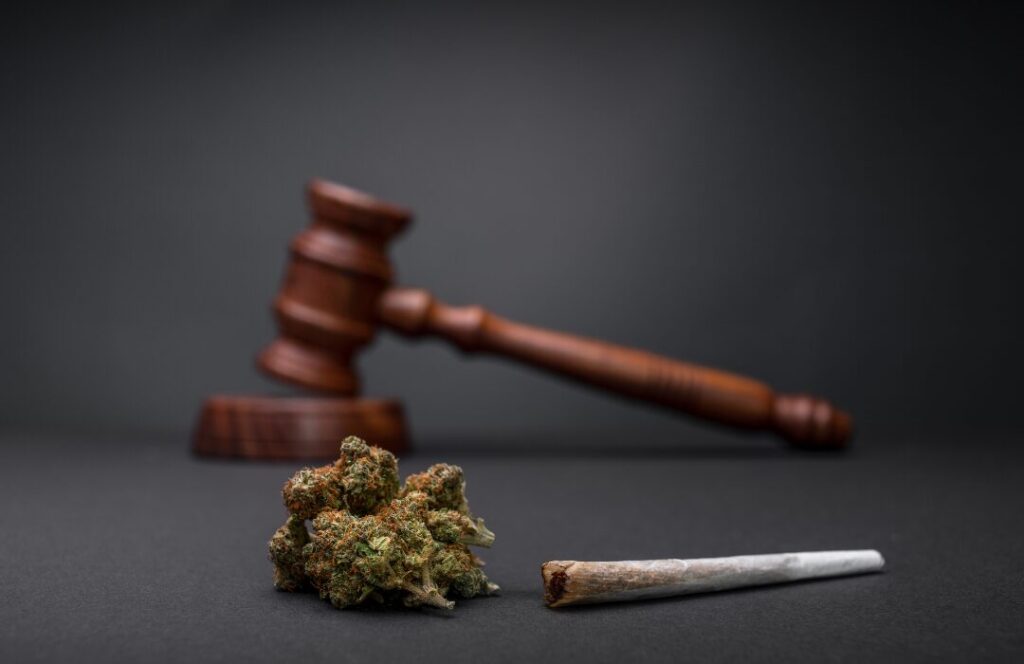The topic of marijuana legalization is a perplexing and bursty one, with varying opinions and regulations across different states in the United States. One state that has been at the forefront of this debate is Florida. Understanding the current status of marijuana legalization in Florida is of utmost importance, as it has significant implications for the state’s economy, society, and public health. This article aims to provide a comprehensive overview of the current status of marijuana legalization in Florida, including an examination of the history of marijuana laws in the state, the impact of medical marijuana on Florida’s economy and society, the push for recreational marijuana legalization, the role of public opinion, the potential benefits and drawbacks of legalization, the regulatory framework for recreational marijuana, the challenges of implementation, the potential impact on Florida’s tourism industry, and the future of marijuana legalization in Florida and beyond.
Understanding the current status of marijuana legalization in Florida
Currently, medical marijuana is legal in Florida under certain conditions. In 2016, Florida voters approved Amendment 2, which legalized medical marijuana for individuals with debilitating medical conditions such as cancer, epilepsy, glaucoma, HIV/AIDS, Crohn’s disease, Parkinson’s disease, and multiple sclerosis. However, there are strict regulations surrounding its use and availability. Patients must obtain a recommendation from a qualified physician and register with the state’s Medical Marijuana Use Registry. Additionally, only licensed Medical Marijuana Treatment Centers (MMTCs) are authorized to cultivate, process, and dispense medical marijuana.
Despite the legalization of medical marijuana in Florida, its availability remains limited. There are currently only a handful of licensed MMTCs in the state, leading to long wait times and limited access for patients. This has sparked frustration among patients who are unable to obtain the medication they need. As a result, there is a growing push for recreational marijuana legalization in Florida.
The history of marijuana laws in Florida
The history of marijuana laws in Florida dates back to the early 20th century. In the 1930s, marijuana was criminalized at the federal level with the passage of the Marihuana Tax Act. This act imposed heavy taxes and regulations on the cultivation, sale, and possession of marijuana. Florida, like many other states, followed suit and enacted its own laws criminalizing marijuana.
The motivations behind marijuana prohibition in Florida were largely racial and political. During the early 20th century, there was a wave of anti-immigrant sentiment in the United States, particularly towards Mexican immigrants. Marijuana was associated with Mexican immigrants, and racist propaganda fueled fears of its use leading to violence and crime. Additionally, political figures used marijuana prohibition as a way to target and marginalize certain communities.
Federal laws have had a significant impact on Florida’s marijuana laws. The Controlled Substances Act of 1970 classified marijuana as a Schedule I drug, alongside substances like heroin and LSD. This classification made it illegal at the federal level and imposed strict penalties for its possession, cultivation, and distribution. As a result, Florida’s marijuana laws have largely mirrored federal laws throughout history.
The impact of medical marijuana on Florida’s economy and society
The legalization of medical marijuana in Florida has had a significant impact on the state’s economy. The medical marijuana industry has created jobs and generated revenue for the state. According to a report by New Frontier Data, the medical marijuana industry in Florida is projected to reach $1.6 billion by 2025, creating thousands of jobs in cultivation, processing, retail, and ancillary services.
In addition to its economic impact, medical marijuana has also had social benefits in Florida. It has provided relief for patients suffering from debilitating medical conditions who have found traditional treatments ineffective or too harsh. Medical marijuana has been shown to alleviate symptoms such as chronic pain, nausea, seizures, and muscle spasms. It has also been used as an alternative to opioids, which have contributed to the opioid crisis in the United States.
Expanding access to medical marijuana in Florida could have even greater benefits. Currently, only patients with specific debilitating medical conditions are eligible for medical marijuana. However, there is growing evidence that marijuana can be beneficial for a wide range of conditions, including anxiety, depression, PTSD, and insomnia. By expanding access to medical marijuana, more patients could potentially benefit from its therapeutic properties.
The push for recreational marijuana legalization in Florida
While medical marijuana is legal in Florida, there is a growing push for recreational marijuana legalization. Advocates argue that legalizing recreational marijuana would not only provide adults with the freedom to use a substance that is less harmful than alcohol or tobacco but also generate significant tax revenue for the state.
The push for recreational marijuana legalization in Florida is driven by both political and social factors. Politically, there is a growing recognition that the war on drugs has been ineffective and disproportionately targeted communities of color. Many advocates argue that legalizing marijuana would help address racial disparities in drug enforcement and reduce the burden on the criminal justice system.
Socially, public opinion on marijuana has shifted significantly in recent years. According to a poll conducted by Quinnipiac University in 2019, 65% of Floridians support the legalization of recreational marijuana. This growing acceptance of marijuana reflects changing attitudes towards drug use and a recognition of its potential benefits.
The role of public opinion in Florida’s marijuana legalization efforts

Public opinion plays a crucial role in shaping marijuana legalization efforts in Florida. As mentioned earlier, a majority of Floridians support the legalization of recreational marijuana. This shift in public opinion has been driven by several factors.
One factor influencing public opinion is the growing body of research supporting the medical benefits of marijuana. Studies have shown that marijuana can be effective in treating a variety of medical conditions and alleviating symptoms. This has led to increased acceptance and support for medical marijuana, which has in turn influenced attitudes towards recreational marijuana.
Another factor influencing public opinion is the recognition of the racial disparities in drug enforcement. The war on drugs has disproportionately targeted communities of color, leading to mass incarceration and perpetuating systemic racism. Many people now see marijuana legalization as a way to address these injustices and promote social equity.
Additionally, the legalization of recreational marijuana in other states has also influenced public opinion in Florida. As more states legalize marijuana, people see that the sky does not fall and that legalization can have positive economic and social impacts.
The potential impact of public opinion on the future of marijuana legalization in Florida is significant. As public support for recreational marijuana continues to grow, it puts pressure on lawmakers to take action. However, there are still challenges and opposition to overcome, particularly from conservative politicians and anti-drug organizations.
The potential benefits and drawbacks of legalizing recreational marijuana in Florida
The potential benefits of legalizing recreational marijuana in Florida are numerous. One of the most significant benefits is the potential tax revenue it could generate for the state. According to a report by New Frontier Data, legalizing recreational marijuana in Florida could generate over $1 billion in tax revenue by 2025. This revenue could be used to fund education, healthcare, infrastructure, and other important initiatives.
Legalization could also have positive economic impacts by creating jobs and stimulating economic growth. The marijuana industry has the potential to create thousands of jobs in cultivation, processing, retail, and ancillary services. It could also attract investment and tourism to the state.
From a social perspective, legalization could help address racial disparities in drug enforcement and reduce the burden on the criminal justice system. The war on drugs has disproportionately targeted communities of color, leading to mass incarceration and perpetuating systemic racism. Legalization would remove the criminal penalties associated with marijuana possession and distribution, reducing the number of people entering the criminal justice system for non-violent drug offenses.
However, there are also potential drawbacks to consider. One concern is the potential impact on public health and safety. Critics argue that legalization could lead to increased use and abuse of marijuana, particularly among young people. They also raise concerns about impaired driving and the potential for marijuana to be a gateway drug.
Another concern is the potential for marijuana to become a big business dominated by large corporations. Critics worry that small businesses and minority entrepreneurs could be left out of the industry, leading to further economic inequality.

The regulatory framework for recreational marijuana in Florida
If recreational marijuana were to be legalized in Florida, a regulatory framework would need to be established to govern its cultivation, processing, distribution, and sale. This framework would need to address issues such as licensing, taxation, product safety, advertising, and enforcement.
One challenge of implementing a regulatory framework for recreational marijuana is striking the right balance between regulation and access. Regulations are necessary to ensure public health and safety, but overly burdensome regulations could stifle the industry and create barriers for small businesses.
Another challenge is establishing a fair and equitable licensing system. It is important to ensure that licenses are accessible to a diverse range of applicants, including small businesses and minority entrepreneurs. This would help promote economic equity and prevent the industry from being dominated by large corporations.
The regulatory framework would also need to address issues such as taxation and product safety. Taxes on recreational marijuana would need to be set at a level that generates revenue for the state without driving consumers back to the illicit market. Product safety regulations would need to ensure that marijuana products are accurately labeled, free from contaminants, and produced in a safe manner.
The challenges of implementing recreational marijuana legalization in Florida
Implementing recreational marijuana legalization in Florida would come with its own set of challenges. One challenge is navigating the complex legal landscape surrounding marijuana at the federal level. While marijuana is legal for medical or recreational use in many states, it remains illegal at the federal level. This creates a conflict between state and federal laws, which can create uncertainty and challenges for businesses operating in the marijuana industry.
Another challenge is the potential for legal and logistical issues. Legalizing recreational marijuana would require changes to existing laws and regulations, which can be a lengthy and complex process. There would also be logistical challenges in terms of establishing a regulatory framework, licensing system, and enforcement mechanisms.
Additionally, there may be opposition from conservative politicians and anti-drug organizations who are opposed to marijuana legalization. Overcoming this opposition and building consensus among lawmakers would be a significant challenge.
The potential impact of these challenges on the future of marijuana legalization in Florida is uncertain. While there are certainly obstacles to overcome, the growing public support for legalization and the potential economic benefits may outweigh the challenges.
The potential impact of recreational marijuana on Florida’s tourism industry
One area that could be significantly impacted by recreational marijuana legalization in Florida is the tourism industry. Florida is a popular tourist destination, attracting millions of visitors each year. The legalization of recreational marijuana could potentially attract even more tourists, particularly those interested in marijuana tourism.
Marijuana tourism refers to travel for the purpose of purchasing and consuming marijuana legally. In states where recreational marijuana is legal, such as Colorado and California, marijuana tourism has become a significant industry. Tourists visit dispensaries, take cannabis tours, and participate in other marijuana-related activities.
The potential benefits of marijuana tourism for Florida’s economy are significant. It could attract additional visitors, generate tax revenue, and create jobs in the tourism industry. It could also have positive spillover effects on other sectors such as hospitality, transportation, and retail.
However, there are also potential drawbacks to consider. One concern is the potential for increased drug-related crime and public safety issues. Critics argue that legalizing recreational marijuana could lead to an increase in drug-related incidents and negative impacts on public safety.
Another concern is the potential impact on Florida’s family-friendly image. Florida is known for its family-friendly attractions such as theme parks and beaches. Some worry that marijuana tourism could tarnish this image and deter families from visiting the state.
The future of marijuana legalization in Florida and beyond
The future of marijuana legalization in Florida and beyond is uncertain. While there is growing support for legalization, there are still challenges and opposition to overcome. The federal government’s stance on marijuana also plays a significant role in shaping the future of legalization efforts.
At the federal level, marijuana remains classified as a Schedule I drug, alongside substances like heroin and LSD. However, there have been some positive developments in recent years. In 2018, the Farm Bill legalized hemp, which is a variety of cannabis with low levels of THC. This has opened up opportunities for the hemp industry and CBD products.
There is also growing momentum for federal marijuana legalization. Several bills have been introduced in Congress to legalize or decriminalize marijuana at the federal level. The MORE Act, which was passed by the House of Representatives in 2020, would remove marijuana from the list of controlled substances and expunge prior convictions for marijuana offenses.
The potential impact of federal laws on marijuana legalization in Florida is significant. If marijuana were to be legalized at the federal level, it would remove many of the legal and logistical challenges currently faced by states with legalized marijuana. It would also provide more certainty for businesses operating in the industry and potentially open up access to banking services.
The future of marijuana legalization in Florida and beyond will also have implications for drug policy in the United States as a whole. The war on drugs has been widely criticized for its ineffectiveness and disproportionate impact on communities of color. The legalization of marijuana could signal a shift towards a more evidence-based and harm reduction approach to drug policy.
The topic of marijuana legalization in Florida is a complex and multifaceted one. Understanding the current status of marijuana legalization in Florida is crucial for policymakers, businesses, and individuals alike. The current laws and regulations surrounding medical marijuana, the push for recreational marijuana legalization, and the potential impact on Florida’s economy, society, and public health all need to be carefully considered.
Moving forward, it is important to continue engaging with the topic of marijuana legalization in Florida and beyond. Public opinion, research, and evidence-based policies should guide decision-making to ensure that any changes to marijuana laws are in the best interest of the state and its residents. By staying informed and actively participating in the conversation, we can contribute to the development of a responsible and equitable approach to marijuana legalization.
If you’re interested in learning more about the Florida Recreational Marijuana movement, you may also want to check out this informative article on the Best Candidate website. The article titled “The Best Candidate App: Empowering Voters in the Fight for Legalization” explores how technology is playing a crucial role in advocating for marijuana legalization. It discusses the features and benefits of the Best Candidate App, which helps voters stay informed about candidates’ positions on recreational marijuana and other important issues. To read the full article, click here.






